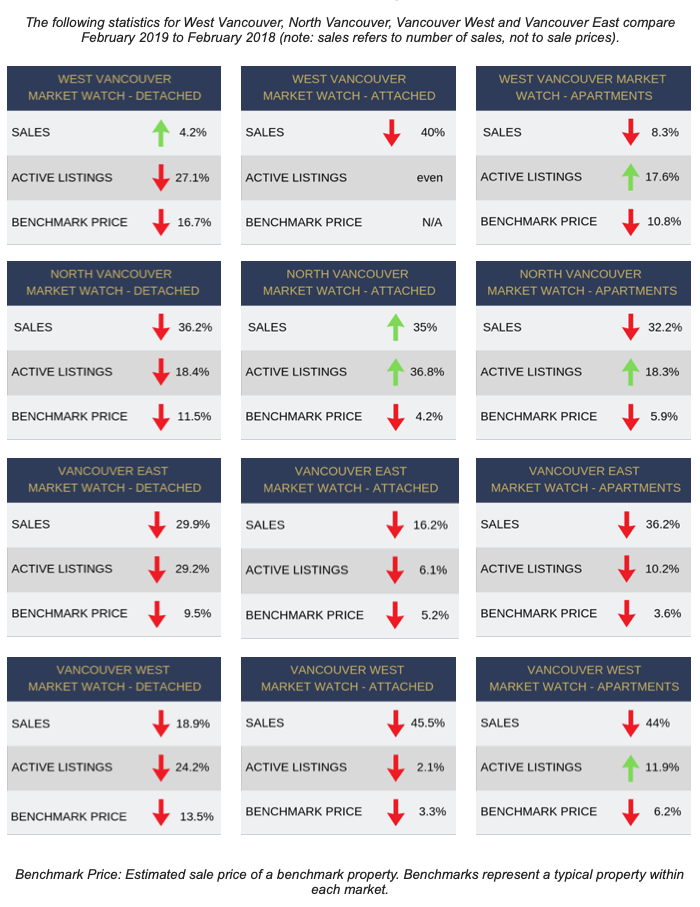

Hint of a changing real estate market?
When will the market change?
That’s the question sellers, buyers and realtors are always asking. None of them has the answer, whether the market favours buyers or sellers. The sellers are out there, waiting for the market to change. The buyers are out there, waiting to jump in before the market changes. Eventually, both factions will determine they have waited long enough, and that’s when the market does start to change.
A couple of our experiences are at least interesting and, potentially,
a little revealing.
We’ve been showing properties to buyers who want to live in the Burnaby-Coquitlam area. Of the properties we’ve shown them over a period of several weeks, about a third of them have sold since New Year’s.
That’s a good sign for a market change.
We’ve also been showing small acreages to potential buyers. This is another market that seems to be on the move, however slightly, in part because it’s a specialized product with a lower supply. And the further you go from downtown, the more affordable it becomes.
That brings up the affordability issue again…when you don’t want to live too far from downtown.
That means Character Homes.
This is a market component which can make Vancouver proper more affordable. Almost without exception, the homes need to have been built before 1940. Ideally, it needs to have enough property to accommodate two or more housing units, probably including a duplex and a laneway house.
There’s a formula for all of this, and we have done the homework necessary to discover how affordability, potential profitability and good value can all be part of the same package in the City of Vancouver. It’s something that is likely to become more popular, so that makes it important to get in on the ground floor.
That’s now, before this market takes off.

A few exceptions to buyer’s market trend
Supply up, demand down. That’s the word from the Real Estate Board of Greater Vancouver in its monthly release covering February. Of course, that doesn’t apply to all Metro Vancouver real estate, but generally the trending of a buyer’s market continues.
There are some indicators that are exceptions to that.
The statistics show increased activity in the Fraser Valley, a market in the Lower Mainland that generally is often the first to recover from a down market. According to statistics from the Fraser Valley Real Estate Board, 982 homes were sold there last month, a 25.3 per cent increase compared to January. There were more detached homes (354) sold than townhouses (236) and apartments (288), but it was a good sign for all three types of properties.
The average number of days to sell a property was also well-distributed: detached homes 43 days, townhomes 39 days and apartments 40 days.
In addition to the Fraser Valley news, other indicators are:
- There were 34.5 per cent more sales in Metro Vancouver in February than in January.
- Realtors throughout the market were reporting more traffic at open houses.
- New listings on the Multiple Listing Service® totalled 3,892 for detached, attached and apartment homes, down 19.7 per cent from January 2019 and 7.8 per cent from February of last year.
- The composite benchmark price of $1,016,600 for detached homes was basically the same as it was in January.
Generally, however, the comparisons to 2018 continue recent trends.
Compared to February 2018, sales were down 32.8 per cent, and 42.5 per cent below the 10-year February average. This composite was compiled from detached homes (27.8 per cent), attached homes (30.9 per cent) and apartments (35.9 per cent).
The total number of homes currently listed for sale on MLS® in Metro Vancouver is 11,590, a 48.2 per cent increase compared to last February.
Nexus Note: As always, this market creates great opportunities for first-time buyers and investors who want to capitalize on current home prices. It also features opportunities for sellers, if their homes are priced properly for the market. Houses are selling, when you have a realtor who connects the people and the property.
 Stress test and the ‘millennial vote’
Stress test and the ‘millennial vote’
The Federal Election is still more than six months away, but don’t be surprised if real estate becomes an election issue. The “Stress Test” introduced by the Federal Government is being blamed by experts for — at least in part — the performance of the real estate market since the test was introduced last year.
The demographic most affected by it is believed to be the millennials, the generation that has turned or is turning 30, the prime age for first-time home buyers.
To refresh your memory: the stress test forces all borrowers seeking an uninsured mortgage from a federally regulated financial institution to qualify at a rate 200 basis points over what they’re applying for or a rate that matches the Bank of Canada’s five-year benchmark rate, whichever of the two is higher. Until then, buyers could qualify with a minimum down payment of 20 per cent.
Gregory Klump, the Canadian Real Estate Association’s chief economist, says the housing market probably would’ve reached “never-before-seen heights” but for Guideline B-20, the official name of the stress test.
In addition to the impact on millennials, he notes that strong rates of employment and immigration and low interest rates would have contributed to a booming market.
“Unlike past policy changes, housing markets do not appear to be adjusting to this one,” Klump writes in Economic Insight. “The boot prints from B-20 will continue to keep housing markets in check in 2019 — and beyond.”

That according to a recent poll, 81 per cent of single Canadians considering home ownership
say they can finance their properties on their own?
Real Estate Monthly Statistics
 To see more information on local stats, please CLICK HERE
To see more information on local stats, please CLICK HERE
